Yves here. As you can see from Tom Neuburger’s snippets below, his discussion with Richard Eskow went well beyond the Ukraine conflict.
I did not cross post his underlying Putin, Ukraine and War post because it intended for another audience and I don’t think readers here would have been all that sympathetic with what Neuburger was trying to do. He gave an exceedingly cautious and limited version of the Russian, and increasingly, Global South, as in Russia’s reasons for launching and continuing it. It came off as defensive, as if he was expecting a lot of resistance from what I have to think are orthodox leftists, the sort that among other things still believes fervently in Russiagate.
By Thomas Neuburger. Originally published at God’s Spies
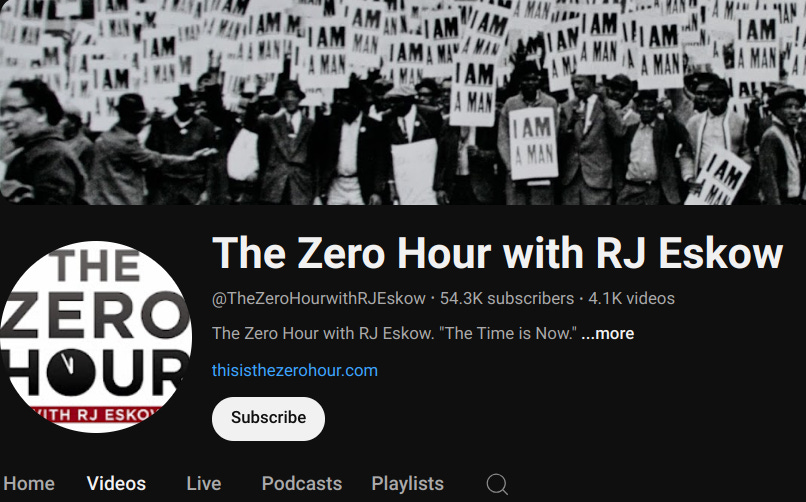
Earlier this month I printed a piece called “Putin, Ukraine and War” that talked about the two ways of framing the Ukraine conflict as seen through American eyes.
Putin, Ukraine and War
SEP 11
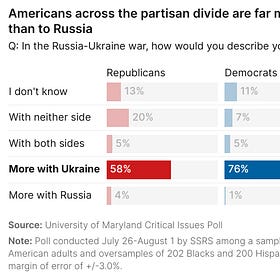
Richard Eskow, host of the program The Zero Hour, asked me to speak about these and related issues recently. That interview is below.
We touched on a range of topics, from the Democrat Party’s embrace of war to Benjamin Franklin’s concept of property. I hope you enjoy it.
The Zero Hour could use your support. One way is to subscribe here.
Russia’s Proposed New Nuclear Policy
Those who are interested in proposed recent changes to Russia’s nuclear policy can read this description. Carl Biejer calls this change “closing the proxy-war loophole.”
Before, Russia would consider using nuclear weapons only when in direct conflict with other nuclear powers, even if their suppliers were nuclear states. The new policy, in Putin’s words, says, “It is proposed that aggression against Russia by any non-nuclear state, but with the participation or support of a nuclear state, be considered as their joint attack on the Russian Federation” (emphasis mine).
That means us.
What Is ‘Property’?
About Ben Franklin’s concept of property, which I mentioned, consider this from his letter to Robert Morse, written Christmas Day, 1783:
All Property, indeed, except the Savage’s temporary Cabin, his Bow, his Matchcoat, and other little Acquisitions, absolutely necessary for his Subsistence, seems to me to be the Creature of public Convention. Hence the Public has the Right of Regulating Descents, and all other Conveyances of Property, and even of limiting the Quantity and the Uses of it. All the Property that is necessary to a Man, for the Conservation of the Individual and the Propagation of the Species, is his natural Right, which none can justly deprive him of[.]
By “Savage” Franklin means the American Indians; in other words, people of a tribal, familial, hunter-gatherer culture. Prehistoric man, in other words. The savage’s “temporary Cabin, his Bow, his Matchcoat, and other little Acquisitions, absolutely necessary for his Subsistence” are what we would call “personal property” in the narrowest sense — my clothes, my personal belongings, my tools.
All other property, like land and territory, is “the Creature [creation] of public Convention”; a product of agreement, in other words, or as his letter later says, “the Property of the Publick, who, by their Laws, have created it, and who may therefore by other Laws dispose of it”.
Kurdistan
We talked about “Kurdistan” in the discussion in relation to the concept of property and territory. There’s an autonomous region within Iraq called Kurdistan, but the real Kurdistan — where the actual Kurd people live — is pictured below.
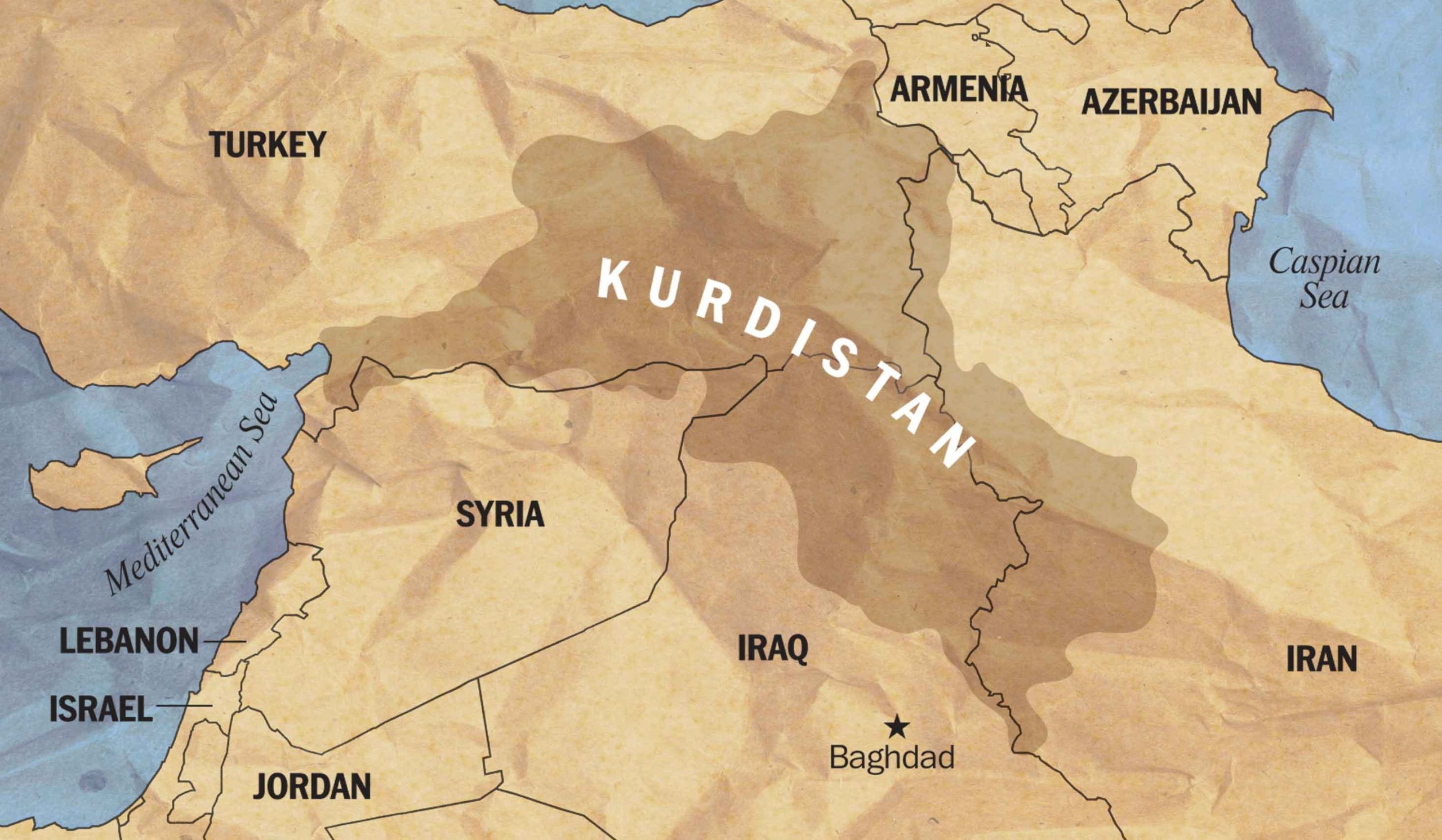
We could have said the same thing about Poland and other modern states.
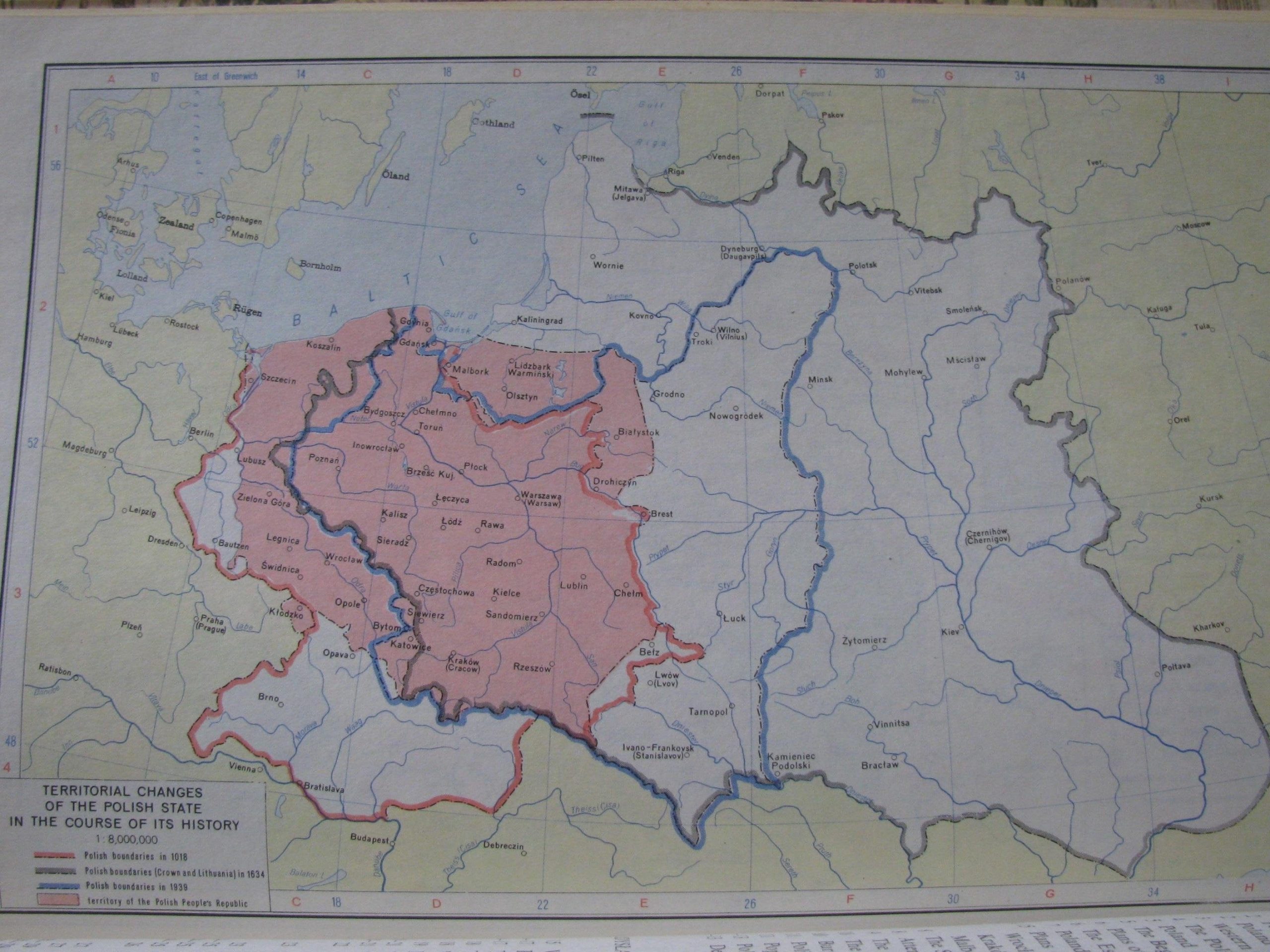
As for today, Germany holds more than a million Polish speakers, and there are quite a few German speakers in Poland.
The War Strain and Peace Strain in America
Those who want to pursue this idea (discussed at more length in the interview) might start with David Hackett Fischer’s 1989 book Albion’s Seed. It looks at the four main British groups that settled the American colonies and what each group brought with them.
These groups were the Puritans, who came from East Anglia and settled in New England; the Cavaliers, monarchists and wealthy landowners from the south of England who settled Virginia and other plantation areas; the Quakers, pacifists from the British North Midlands who settled the Delaware valley; and the independent, warlike Scots-Irish, who settled the southern states and Appalachia.
Puritans and Quakers were generally peaceful. The others were not.
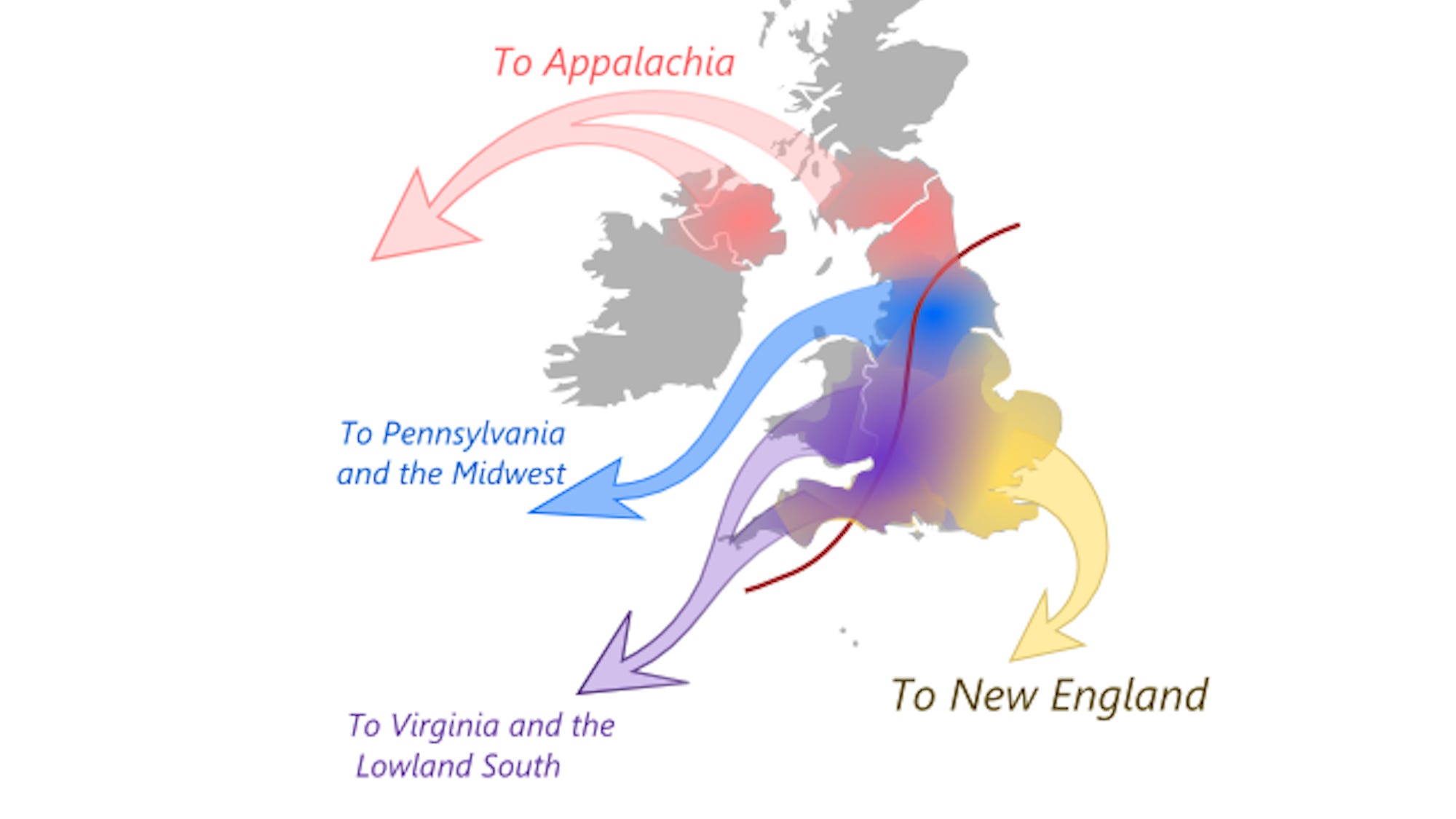
There’s a good general description of these groups here. Joe Klein has a good discussion of what distinguishes these groups here, though he doesn’t address their approach to peace and war. Those ideas are mine, or from a source I can no longer identify.


we have to quite calling bill clintons european liberals the left, they are anything but left. anyone who believes that russiagate was true, is not the left, but a neo-liberal.
the neo-liberal is quite comfortable with fascism. and will embrace it with full gusto!
a true leftist knows fully well whats going on against russia.
whats mine is mine, whats yours is mine, and there will be no discussions about it period.
naziism was based on britons free trade.
today the bill clinton european liberals lost the free trade war. now they are embracing full blown fascism.
“Puritans and Quakers were generally peaceful.”
He got it half right. The Puritans were as vicious and rapacious a lot as ever arrived on these shores. The Puritan Oligarchy in Boston and Plymouth had an insatiable lust for the lands of the native peoples and particularly for the lands of heretics and friends of the Indians like Roger Williams. Their slaughter of the Pequots in 1636 horrified even the tribes allied with the English. The Puritans brought total war to New England. After their final victory over the Narragansetts and Wampanoags 40 years later, they sold the tribal remnants off into slavery to Bermuda. Metacom’s (King Philip) head rested peacefully on a pike at Plymouth for many years thereafter.
Indeed. Cromwell was a Puritan.
Also, it’s not that clear-cut because southwest England was a hotbed of religious reaction. It was staunchly Catholic in the Protestant reformation and rose up in the Prayer-book Rebellion. Then, to be cussed, it went the other way and spawned a whole host of Protestant fundamentalists from the Wesleys and Methodism all the way to the Plymouth Brethren. It’s very much a question of who and when, from the southwest, in terms of their fundamentalism and probable bellicosity.
After, of course, the Pilgrim Fathers who settled New England came from/via Plymouth….
Finally, as an amusing counter-example, Ottawa was largely settled by Devonians and Cornishmen and is peaceable and Canadian (John Graves Simcoe, the first governor of Ottawa, is remembered in Devon on a plaque in Exeter’s Cathedral Close and his grave at Wolford near Honiton is signposted with a Canadian flag because it is officially Canadian territory).
I was amused to find that Simcoe was the head of British expeditionary force in Haiti that fought L’Ouverture. I suppose that by itself means nothing, but I am curious how he is viewed in Haiti, if he is remembered at all (Given thw circumstances, it would speak well for him if the locals have no memory of him…)
I prefer Colin Woodard’s American Nations
https://colinwoodard.com/books/american-nations/
YMMV …
seems like i read a similar book, years ago, that treated the same thesis…dont remember the author or the name of the book, though.
i’m about half scots-irish, so i can definitely dig the appalachian part of the thesis…which seems, in both books, to reach down into my texas hill country.
altho i get along better with the descendants of the earlier adelsverein german freethinker settlers.
all that said…i reckon that theres been far too much mixing and mushing for any of all those neat categories to hold water.
after the civil war, alone, there were mass migrations of people.
and while, in many places(like right here, where im at) there was self segregation along ethnic lines…the mixing still occurred.
salad bowl instead of melting pot.
” …. salad bowl instead of melting pot.”
I like your analogy, Amfortas. A chopped salad, with sprinklings of nuts and fruits on an assortment of your down-home veg … chewy cabbage, spicy young mustard greens, pungent red onions, all bound together with a dressing of olive oil and apple cider vinegar, with touches of hot mustard and garlic.
> what we would call “personal property” in the narrowest sense — my clothes, my personal belongings, my tools.
[I regret I have lost the source for the next paragraph’s argument.]
: John Locke’s original formulation of rights was ‘Life, Liberty, and Property.’ The Constitution changed ‘Property’ to ‘Pursuit of Happiness’ when landowners worried people could demand the right to Land. The Pursuit of Happiness in particular includes the mobile tools which allowed a person to ply their trade.
Turns out the Locke ‘quote’ is a bit slippery to find. The property issue seems adjacent to Land, Labor, and Capital. A person has the right to use their liberty to take their labor where they will, with the tools (capital) to use their skills when they arrive. Note this is a PreIndustrial perspective.
Franklin’s formulation makes me nervous:
> Hence the Public has the Right of Regulating Descents
since the definition of the Public seems to be sizzling on the barbeque right now. But he is correct in the radical sense, beyond precedent. Revolutionary, even.